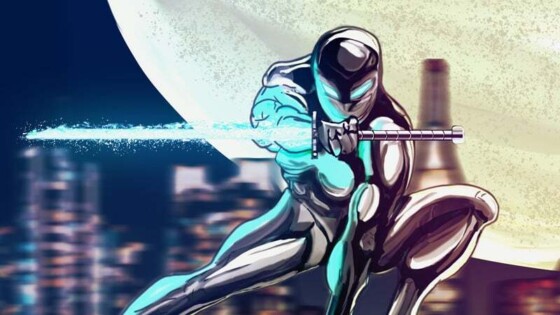The Oracle by K.S. Marsden proves that you don’t always need elves, orcs, and halflings to create a fun and exciting new fantasy world.
Before I begin, I must disclose that I was a beta reader for this book and also received a free copy for participating in the beta read. (Which is awesome.)
This review has been a long time coming and I’m glad to finally have the time to sit down and write it out. The Oracle is the second book in K.S. Marsden’s Enchena duology. The Oracle is a direct follow up to K.S. Marsden’s first novel, The Lost Soul. In The Oracle, we change POV’s and follow newcomer Gemma.
For those of you unfamiliar with the Enchena books, they are similar to Chronicles of Narnia sans magical wardrobe. A teen from the modern world is thrust into a magical fantasy realm. She encounters talking unicorns, predatory mallus which are wolf/ape-like hybrids, and an evil necromancer king.
The Oracle is a classic fantasy adventure that feels fresh and new.
The world of Enchena is full of magical forests, ancient tombs, lavish castles, and even more portals which lead to other dimensions.
To this day, I’m still curious of the mysterious world Samantha and company journeyed to. The Oracle delivers endearing, memorable characters, and no whiny brats. Though the tone and atmosphere is light and magical, there still exists heartbreak and loss.
Gemma, like Samantha, is the everyman, (or woman in this case). She is a teenager living in England with her mom. A bit of a social outcast, but not so much that she doesn’t have friends. Like Samantha, she discovers a magical portal which transports her to the world of Enchena. A dangerous place where not knowing how to ride a horse or wield a weapon could get you killed. Unfortunately for Gemma, she can do neither. What she lacks in grit, she makes up for with compassion, bravery, and the useful ability to perceive the future.
There is a strong theme of destiny woven throughout The Oracle; and one that makes the reader question if the future is malleable or etched in stone.
These are deep, philosophical questions to ask and one that you might not expect in a book featuring talking unicorns.
The talking unicorns by the way, are fleshed out characters. Don’t think these are cuddly creatures spewing rainbows out of their bum. They are selfish and uninterested in the affairs of man. Like humans, some are good and some are evil. The Mallus however, are neither good nor evil, they are predators. Siabhor is the Mallus companion from the first novel and he is probably my favorite non-human character of all the cast. Sadly, Siabhor is under utilized in The Oracle, so if you want to read up on his adventures, you’ll have to go back to book one, The Lost Soul.
And this is where we run into one of the major issues with The Oracle.
Gemma becomes a secondary character in her own novel.
She has no relationship with Alina, the unicorn, or Siabhor, the mallus, who were the best parts of book one.
Gemma’s newcomer status, although necessary for new readers, becomes a detriment for anyone who has read The Lost Soul. In addition, Gemma’s lack of training in combat leaves her immediately sidelined once the battles begin. When Samantha, the heroine from the first novel returns, she usurps Gemma’s role as the protagonist. It’s a point of view switch which made me question whether the entire novel should have been Samantha’s POV from the start.
A lot of the relationships and emotional moments directly affect Samantha more than Gemma. Gemma doesn’t get a love interest, or a heroic rescue, or any tight bond with anyone except for a family she stays with, Samantha does. When a specific character dies in the book (a death which still saddens me) it affects Samantha more than Gemma.
Samantha is the true protagonist of the novel.
Though Gemma does help gather reinforcements for the final battle, she’s not among those riding in for the dramatic rescue.
The Oracle also has an issue with rapid-fire pacing. Though I love novels that read quickly, The Oracle moved a little too fast for me. I had difficulty following the events, which forced me to reread passages so I could make sense of it all.
I also had some minor gripes about The Oracle’s ending which fell a bit on the weak side. Though I was happy it didn’t end in a cliffhanger, there were some character resolutions and plot threads which seemed a little too convenient. Not necessarily Deus Ex Machina but a tiny bit clichéd. Luckily, the ending leaves room for more stories in the world of Enchena.
But don’t let these minor gripes turn you away from these novels. I had a wonderful time reading them (even chuckled a few times) and also think these books would be good shared with children. The violence is never gory or extreme and the tone is consistently positive so as not to feel oppressive or dark. If The Oracle were a movie, it would be rated PG-13.
If you need a break from elves, dwarfs, kobold’s, trolls, and orcs, The Oracle’s Enchena is a brand new universe waiting for you to discover it.
An extremely high four out of five stars.





